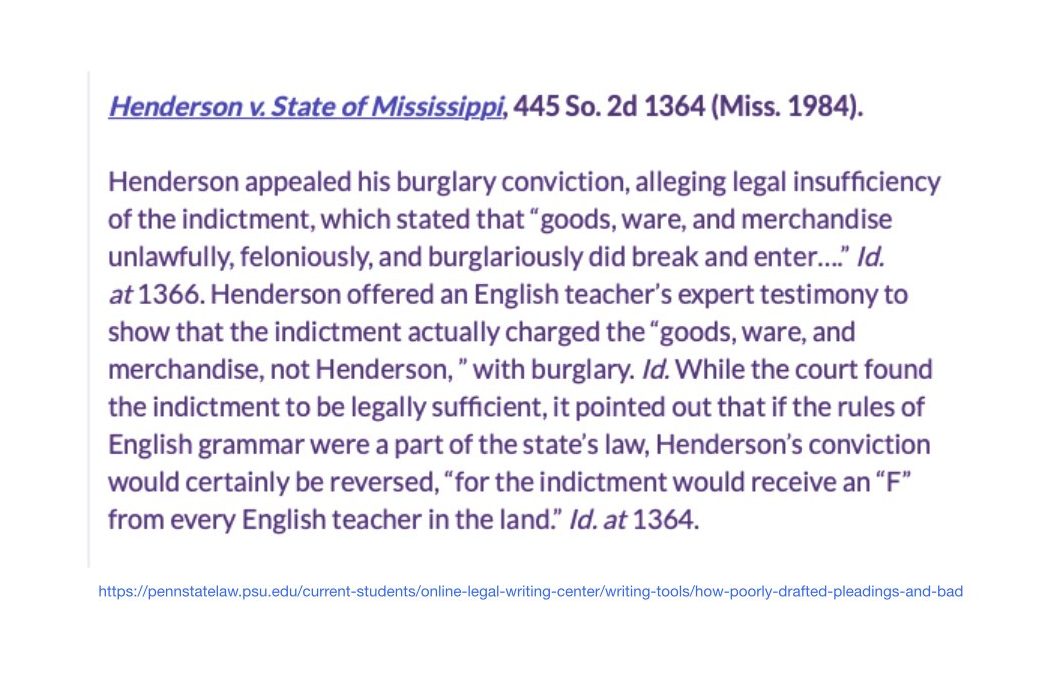What is grammar?
As one who has devoted a large part of his life to the study of various aspects of languages and language learning, I am often asked why I bother. So many people feel I’m wasting my time in a world where there are bigger issues at stake.
Of course there are bigger issues but, if we want to communicate about those issues, we need to be able to express ourselves accurately – and we need to understand grammar to do that.
Simply put, grammar is a term for the building blocks of language. Just as we classify the names of plants, animals, elements etc. into groups, so we classify different types of words.
It is not sufficient, however, to know the names of those groups; we also need to know how they can be connected in order to communicate information and ideas accurately, effectively and sensibly. The ordering of words is called syntax.
Obviously then, given that communication involves considerably more than reeling off words, we certainly do need both grammar and syntax!
Consider this alphabetically arranged list of words:
a bite by child poisonous snake the yesterday
Without connecting these words grammatically and syntactically, nothing is conveyed; i.e. there is no communication.
If, however, we connect the words by paying attention to the following:
- placing the subject at the start of the sentence
- following it with the verb in its correct form
- placing the adjective in an appropriate position – before the noun
- following the preposition with an appropriate object
- placing the adverb (the ‘time word’) in an acceptable position,
information can be conveyed and, therefore, communication can be achieved.
If we don’t use grammar (and syntax) correctly, we can end up with nonsense such as:
The yesterday child bite by a snake poisonous.
or
Snake the yesterday bite by a poisonous child.
The words are all correctly spelt English words but they fail to communicate any idea or information. If, however, we use our knowledge of grammar and syntax to arrange the words in a logical sequence, we can communicate the information effectively.
Yesterday the child was bitten by a poisonous snake.
or
The child was bitten by a poisonous snake yesterday.
When English is not your mother tongue …
Native speakers are able to sort out and adjust the jumbled words reasonably easily, but let’s give a thought to those who are learning English as a second or a foreign language! If they don’t have access to the rules, what chance have they of communicating accurately and effectively?
In our multi-cultural world where English is the most widely studied foreign language, let’s encourage its acceptance and appreciation and assist those learning it by offering them instruction in one of the basic tools of language learning – grammar.
Communicating effectively is a basic skill
The rules of grammar are rather like the instructions for assembling flat-pack furniture, knitting a pullover or building a house.
As my mother says, it’s very easy to go and buy the yarn and the needles but, without the skills to knit that pullover, not much is going to be achieved. Even to read the pattern, you need to know what knit, purl, slip the stitch, cable etc. actually mean – and you also need to know how to make these stitches. Think of the stitch types as the grammar and the ordering of them to create patterns as the syntax of knitting.
Similarly, but on a much larger scale, if you give me some wood, some nails and a few other tools, I very much doubt that, even if I try all day, I’ll be able to build anything. I need to learn the skills and follow the instructions (the grammar and syntax, if you like, of building) before I can even think of constructing anything other than a mess.

Actually, the building analogy is a useful means of explaining exactly what syntax is. Given that grammar can be likened to the correct use of the nails, screws – and various other ‘bits and pieces’ (You can see that I know nothing at all about building anything either!), then syntax is the order in which you build the various parts of the house. It’s no use, for instance, trying to attach a roof to a non-existent frame! And as for that flat-pack furniture, my garage is home to various failures. I try but I’m not very good at the instructions – another way of saying that I simply don’t understand the syntax.
So, on a practical level, it is important to understand grammar so that we can speak and write correctly and, therefore, communicate effectively.
But that’s not all!
Understanding our mother tongue is fundamental knowledge
It’s interesting to know about your language, just as it’s interesting to know about your family, your home, the functioning of your body and, indeed the world around you.
A good general knowledge is a foundation for life – and learning.
To learn another language can be a huge challenge, but, in the case of Indo-European languages, if you understand the grammar of English, you have a firm foundation on which to build your knowledge of any subsequent languages. The concepts are the same. A verb has the same function in all Indo-European languages so, if you understand that function in your mother tongue, you will have a huge shortcut in the quest for acquisition of the next language.
More than all of that, learning grammar involves mental discipline and promotes clear and logical thinking. Good grammar requires mathematical precision so it is not at all surprising that there is a correlation between mathematical ability and linguistic ability. We all have our natural strengths and weaknesses but we can all learn to achieve basic proficiency in any skill if we set our minds to it. All it needs is dedication and practice.

Who determines the rules? Do they matter?
Sadly, although most European languages have official academies which determine the rules of grammar, English does not. Grammar is far less rigorously taught in anglophone countries than in continental Europe.
It is widely reported that anglophone native speakers struggle with grammatical concepts when trying to study a subsequent language whereas native speakers of other European languages do not. They know the rules and have to abide by them as a matter of educational course. That strong foundation is very useful.
Several of my multilingual colleagues, all native English speakers, swear blindly that it is their knowledge of English grammar which has facilitated their learning of subsequent languages. They acknowledge a significant advantage over their classmates who do not understand how grammar works.
Accurate English – a matter of respect
Correct use of the English language also identifies a person as one who takes the time and trouble to speak or write properly. Good grammar is like good manners in that it shows that you have the desire to make life – communication, in this case – as easy and pleasant as possible for the other person. It shows that the writer or speaker has respect both for himself or herself and for the person addressed. A well-written job application is a pleasure to read; a chaotic jumble of words is not. No doubt we all remember our teachers’ comments as they handed back our essays … Most teachers admit to leaving the poorly hand-written, untidy, inaccurately expressed essays till last – by which time they are tired and far from enthusiastic about ploughing through these badly presented offerings to struggle to understand the content! The consequence: poor marks!
Unintended ambiguity: funny – and not so funny …
As discussed above, poor grammar and syntax can prevent communication of the intended idea. Sometimes, however, the consequences can result in unintended humour:
An umbrella was lost by a woman with silver ribs. Really? I have a titanium dental implant, but the notion of silver ribs is rather far-fetched.
This is our seventh son named Luke. Imagine introducing them all at a party!
If fresh fruit cannot be tolerated by the child, cook it. The cooking of children is both illegal and unethical.
The meeting was held in the large boys’ study. Were the boys large or was the study large?
Don’t kill your cleaner with hard work; let electricity do it! Very worrying: should electricity do the work or should it kill the cleaner?
While the ambiguity of these examples provides humour, the implications could be very serious in a legal context.
Penn State University quotes on its website an example in which the property rather than the thief is indicted on a count of theft.
So, learn how to use grammar properly so that such misunderstandings are avoided.
To communicate effectively, pay attention to your grammar! Grammar is important – and yes, we need it.


